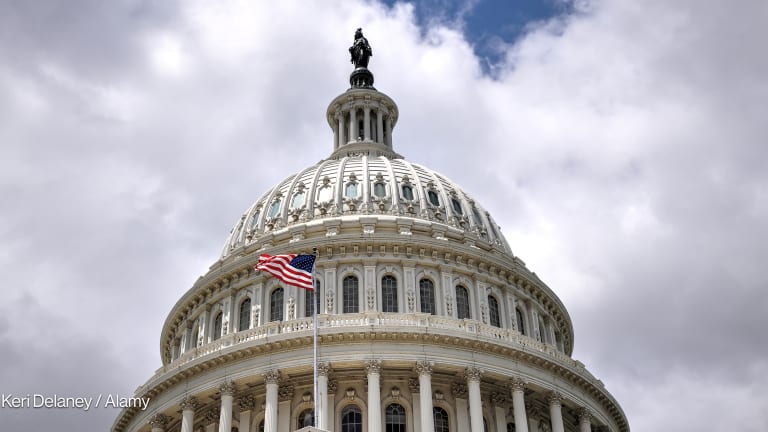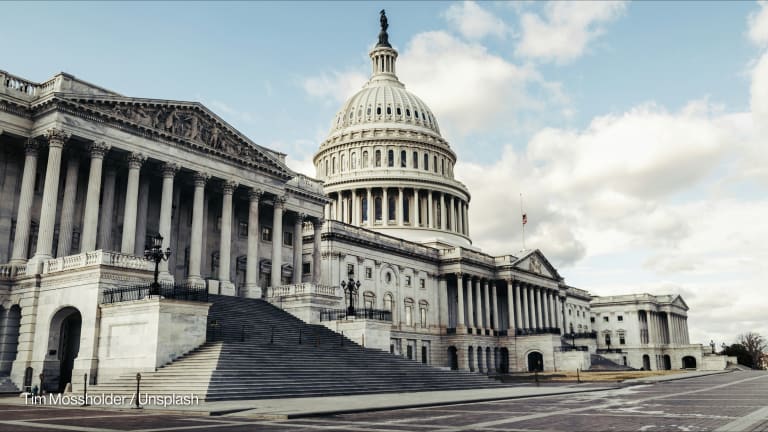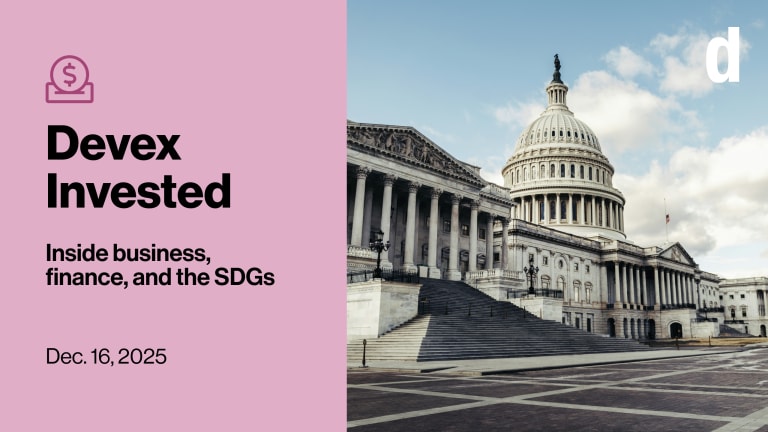Failure to launch: Why congressional budget drama delayed US DFC

WASHINGTON — The new U.S. International Development Finance Corporation will not officially launch as planned on Oct. 1, a result of congressional delays in approving annual funding.
Congress failed, as it has done regularly in recent years, to pass a budget bill for foreign aid before the start of the new fiscal year. Instead, lawmakers approved a continuing resolution to fund the government through Nov. 21, giving itself more time to come to a budget agreement. The result is that the new DFC does not have funding to begin its operations.
For now, the Overseas Private Investment Corporation and U.S. Agency for International Development’s Development Credit Authority will continue normal operations as some preparations for the DFC proceed.
Catch up on US DFC’s journey so far
► Support for new US development finance bill, even as some details are questioned
► BUILD Act for new US development finance corporation sails through Senate committee vote
There were some efforts by DFC advocates to try to get Congress to include an anomaly, or clause in the continuing resolution, that would have allowed the DFC to spend the money that had been appropriated for OPIC but they felt short. When passing a stopgap spending measure, Congress is typically hesitant to add such clauses.
“We’re dependent on appropriations from Congress; that will dictate when DFC begins its operations,” OPIC’s COO Edward Burrier told Devex in an interview.
While the much-touted DFC, already being represented as a key part of President Donald Trump’s development legacy, will be delayed, Burrier said he is still confident that the new agency has congressional support, pointing in part to the speed with which the nominee to lead DFC was approved last week.
Incoming DFC CEO Adam Boehler will likely begin work for DFC as soon as he’s sworn in, even if the agency hasn’t formally launched and David Bohigian, the acting CEO of OPIC will continue to lead that agency in the interim, according to Burrier.
While the launch of DFC was slated for Oct. 1, the agency was created by the Better Utilization of Investment Leading to Development, or BUILD Act, which was signed last year and its foundations have been built since, including the approval of its bylaws and its risk and audit committees by the board in June.
The agency’s new authorities — including the ability to make equity investments, provide technical assistance, and provide funds in local currency — will be delayed until the launch, but there is still some planning work on the way to ease the transition once the funding is in place.
Staff from USAID’s Development Credit Authority will be moving to OPIC’s building and they will continue to be paid by USAID until the appropriations bill goes through. OPIC will continue to finalize and hone “impact quotient,” a new tool to measure development impact and work with Boehler and the board to select someone for the chief development officer role.
Top officials at OPIC and USAID are talking multiple times a day, with Bonnie Glick, deputy administrator of USAID, leading the efforts for that agency, working on the links between the organizations and helping ensure that each USAID mission has a DFC point of contact.
“Momentum is not pausing on some of these mechanics, nuts and bolts,” so that the DFC is ready once the appropriations come through, Burrier said.
Budget bills in both the House of Representatives and the Senate have both included funding for the new DFC, though at different levels.
Both bills that have been approved by Congress include less funding for equity investments than many supporters of DFC had wanted. The cap for equity investments in the DFC’s 7-year authorization was $20 billion, whereas the administration asked Congress for $150 million in year one — the Senate bill matched that number and the House bill provided less for equity.
At issue is how the administration-proposed equity investments would be scored for budget purposes, which would essentially treat the investments as grants and assume they would result in a total loss of the money invested. DFC advocates have been working to try to get appropriators instead to score equity investments using a system similar to that other development finance institutions use, called “net present value,” which would be more in line with how debt investments are scored and how banks account for risk.
Advocates are recommending what they consider to be a conservative approach — using the $50 million appropriated in the House bill as an equity loss reserve fund that could cover potential losses. That fund would enable up to $1 billion in equity investments, assuming that the agency’s equity investments would lose an average of 5% of the funds invested, although the equity investments are expected to make money rather than lose it.
If DFC does not receive sufficient equity investment funding scored appropriately, “this new tool will be severely limited in accomplishing economic development in developing countries and cede our leadership in development finance to China,” a group of congressional supporters, including BUILD Act co-sponsors Rep. Ted Yoho, a Republican from Florida, and Rep. Adam Smith, a Democrat from Washington, wrote in a letter to the House Appropriations Committee earlier this year.
Search for articles
Most Read
- 1
- 2
- 3
- 4
- 5








